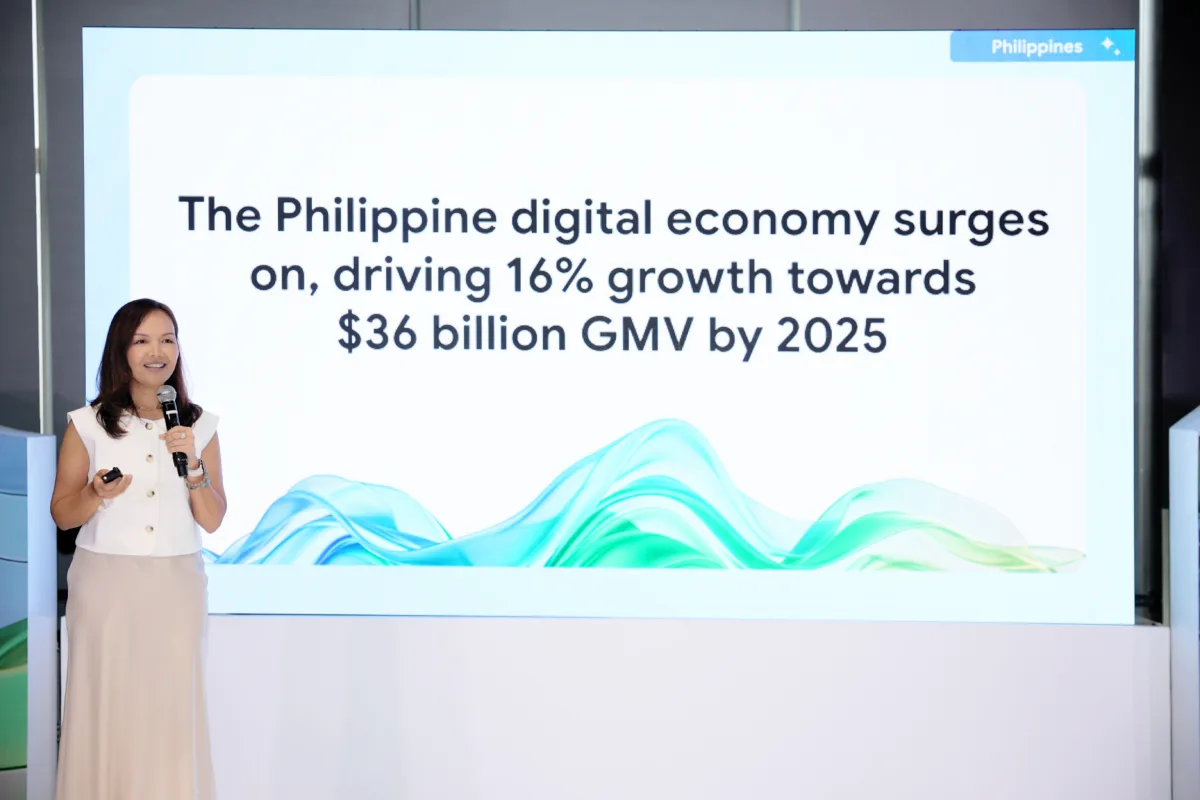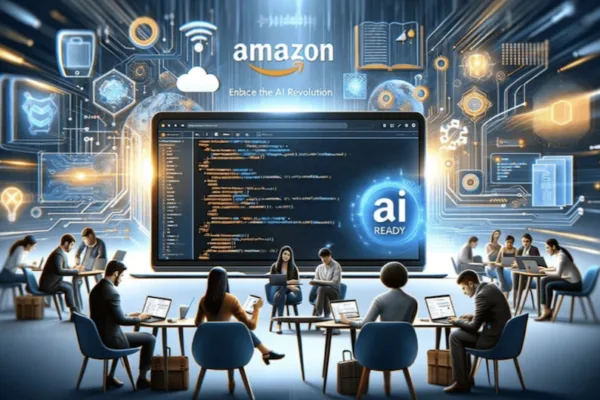AI adoption is fueling the Philippines’ digital economy, driving rapid growth as consumers and businesses embrace AI-powered tools and digital services at scale.
According to the latest e-Conomy SEA 2025 Report by Google, Temasek, and Bain & Company, the country is on track to hit $36 billion in GMV next year, expanding 16% year-on-year — one of Southeast Asia’s strongest growth rates.

This year’s inflection point is clear: the Philippines is no longer just catching up in digital adoption. It is emerging as one of the region’s AI-forward markets, where consumer behavior, upskilling trends, and platform usage are creating a new growth engine for the digital economy.
As event moderator Mimi Ong noted during the briefing: “We know that the challenge is real—and so is the competitive advantage. It is here, and it is now.”
AI-ready consumers fuel a new era of digital expansion
What sets the Philippines apart in this year’s report is the scale and speed of AI adoption among everyday users. The country ranks among the top global markets for multimodal AI interest, reflecting a population eager to integrate AI tools into daily digital routines.
Key indicators show a shift toward AI-first behavior:
- 78% of Filipino digital users now regularly use AI-powered features
- 4.8× increase in AI-related online course enrollments
- Fast-rising commercial activity in AI-enabled apps
- Growing openness to using AI for recommendations, task automation, and content creation
This adoption is reshaping platform engagement across multiple sectors—from banking and commerce to travel and content platforms. For businesses, the trend signals a market ready for AI-driven products, deeper personalization, and advanced digital financial services.
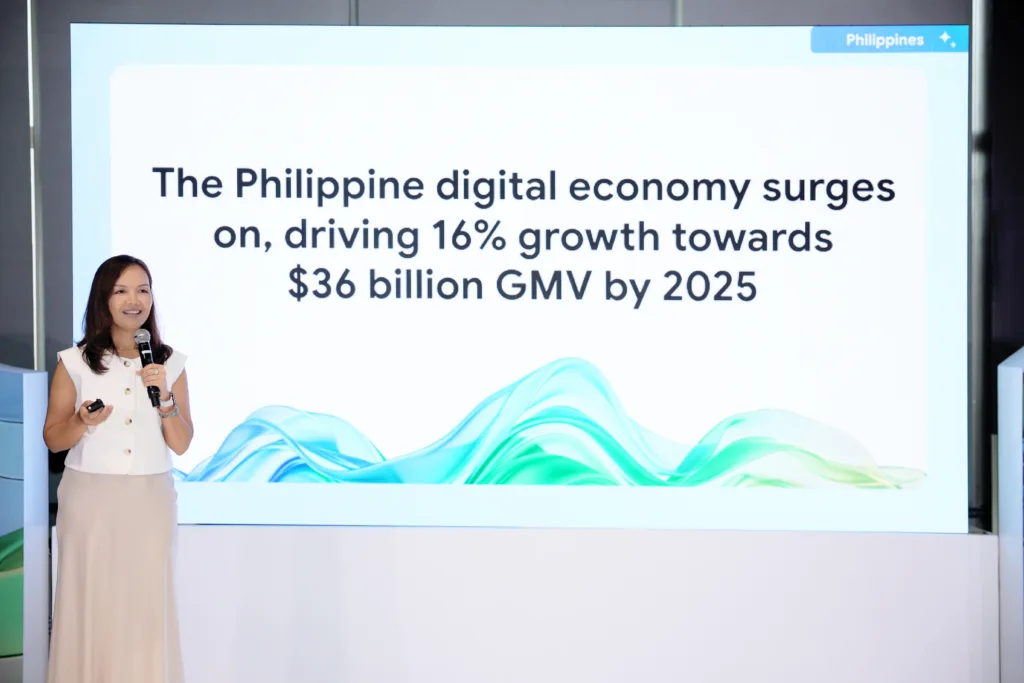
Google Philippines Country Manager Prep Palacios underscored the urgency and acceleration of this shift: “Today, we stand at a new starting line — and it calls for an even bolder ambition. The next big leap won’t be measured in years, but in months.”
“More than 70% of businesses in Southeast Asia have seen ROI from AI in 12 months or less… they’re seeing value in quarters, not five-year plans,” she added. Rather than acting as a future aspiration, AI is already becoming embedded in the way Filipino consumers search, transact, learn, and discover.
E-commerce and video commerce continue to transform local retail
The Philippine e-commerce ecosystem remains a major pillar of digital growth, supported by a massive boom in video-driven retail.
The report shows:
- 475,000 active video commerce sellers (+90% YoY)
- 1.2 billion transactions conducted via video commerce
- Fashion, beauty, and personal care dominating category GMV
This surge marks a structural shift in how Filipinos shop online. Video commerce—powered by creator-led selling, app-integrated live shopping, and short-form product discovery—is redefining digital retail engagement.
E-commerce now accounts for over 60% of Philippine digital GMV, with video commerce emerging as its fastest-moving subsegment. The integration of AI-powered recommendations and automated seller tools further accelerates seller productivity and consumer conversion.
With more than half of the country’s online population now consuming video-first content daily, the path from product discovery to purchase has never been more streamlined.
Transport, media, and payments lead SEA growth as digital behavior deepens
Beyond retail, several digital sectors in the Philippines are outperforming much of Southeast Asia. The report highlights three standout categories:
- Transport & Food Delivery: +20% (fastest in SEA)
- Online Media: +16% (tied for regional lead)
- Digital Payments: +20% (second-fastest in SEA)
These gains reflect a tech-forward user base increasingly relying on digital platforms for mobility, entertainment, and financial transactions. Mobile-first usage continues to dominate across provinces, with on-demand and streaming services integrated into daily routines.
Digital financial services — payments, lending, insurance, and wealth — are also expanding steadily, driven by improved interfaces, greater trust in digital channels, and stronger regulatory frameworks supporting consumer protection.
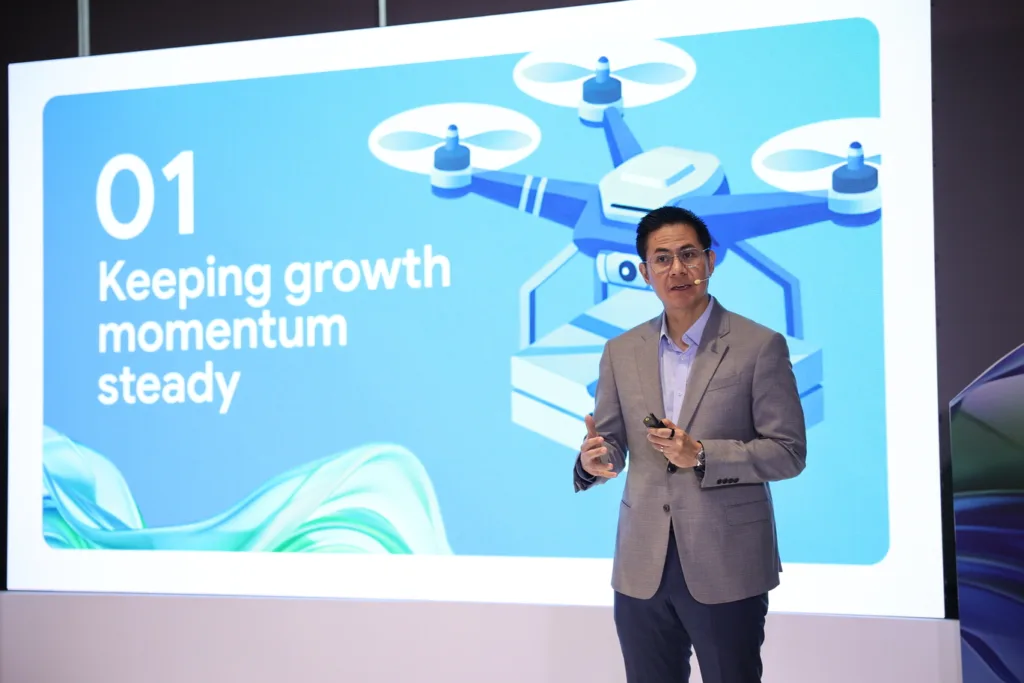
Bennett Aquino emphasized that “The race against this clock will be underpinned by the things that fuel the engine of this AI economy.” Among these are investment renewal and stronger digital infrastructure.
He added a clear warning: “Trust is now becoming the currency of this AI age. It is a non-negotiable. If there are slip-ups on trust, this opportunity could be squandered.”
A market ready for AI-empowered growth
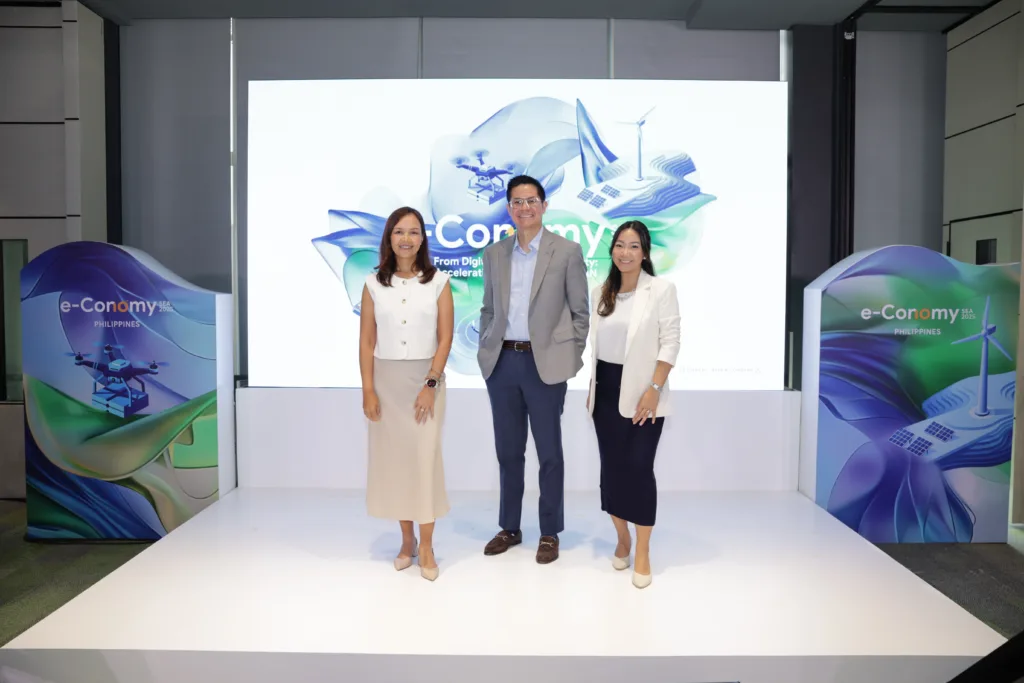
The Philippines has entered a stage where its digital economy is not only growing but evolving—powered by platforms that integrate AI, consumers willing to adopt new technologies, and regulatory momentum that supports innovation.
The report points to a future where:
- AI elevates everyday user journeys
- Video commerce becomes the new e-commerce backbone
- Payments systems continue integrating across the region
- More sectors adopt automation, personalization, and predictive analytics
Regional cooperation will be critical. As Nikki Del Gallego emphasized, “Regional cooperation is the biggest challenge — and the biggest opportunity — in this AI decade.”
She added: “Interoperability isn’t just about connecting the dots. It’s working together to make the economic benefit real.”
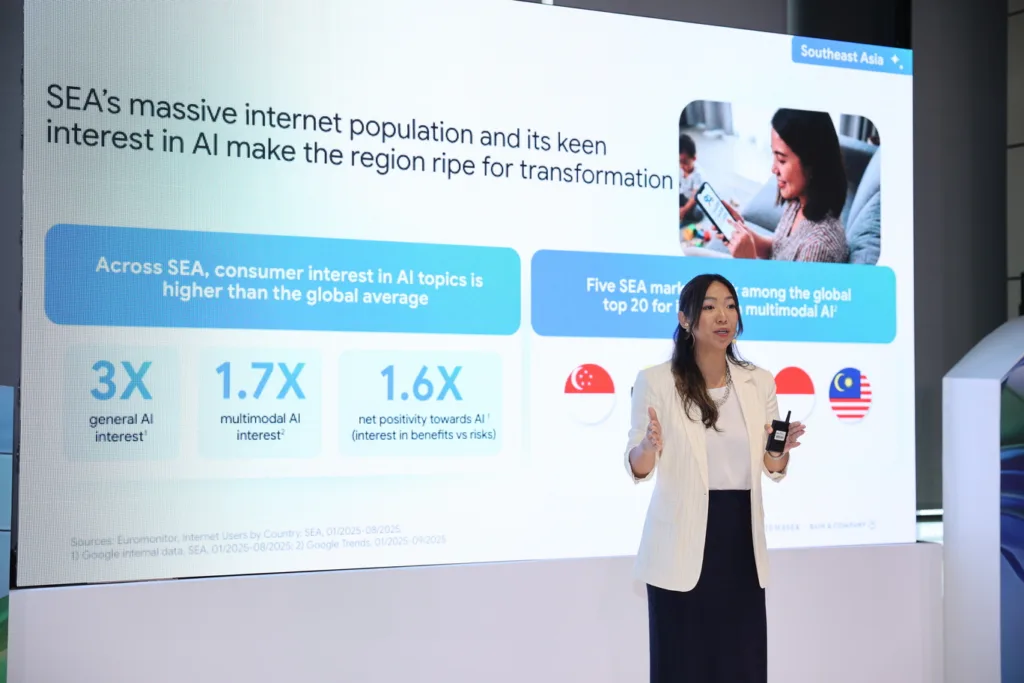
With interoperable QR payments already enabling Filipinos to transact seamlessly across countries, Southeast Asia is beginning to realize the benefits of unified digital standards.
The Philippines, with its momentum and AI-driven consumer base, is positioned to capture outsized gains as this integration deepens. As Nikki concluded, “We are so leaned in as a region. Now it’s all about driving all of this to create more value.”
Download the full e-Conomy SEA 2025 Report here.
About Google
Google’s mission is to organize the world’s information and make it universally accessible and useful. Through products and platforms like Search, Maps, Gmail, Android, Google Play, Google Cloud, Chrome and YouTube, Google plays a meaningful role in the daily lives of billions of people. Google is a subsidiary of Alphabet Inc.
About Temasek
Temasek is a global investment company headquartered in Singapore, with a net portfolio value of S$434 billion (US$324b, €299b, £250b, RMB2.35t) as at 31 March 2025. Its Purpose “So Every Generation Prospers” guides it to make a difference for today’s and future generations. Temasek seeks to build a resilient and forward-looking portfolio that will deliver sustainable returns over the long term.
It has 13 offices in 9 countries around the world: Beijing, Hanoi, Mumbai, Shanghai, Shenzhen, and Singapore in Asia; and Brussels, London, Mexico City, New York, Paris, San Francisco, and Washington, DC outside Asia.
About Bain & Company
Bain & Company is a global consultancy that helps the world’s most ambitious change makers define the future. Across 65 cities in 40 countries, we work alongside our clients as one team with a shared ambition to achieve extraordinary results, outperform the competition, and redefine industries. We complement our tailored, integrated expertise with a vibrant ecosystem of digital innovators to deliver better, faster, and more enduring outcomes. Our 10-year commitment to invest more than $1 billion in pro bono services brings our talent, expertise, and insight to organizations tackling today’s urgent challenges in education, racial equity, social justice, economic development, and the environment. We earned a platinum rating from EcoVadis, the leading platform for environmental, social, and ethical performance ratings for global supply chains, putting us in the top 1% of all companies. Since our founding in 1973, we have measured our success by the success of our clients, and we proudly maintain the highest level of client advocacy in the industry.




